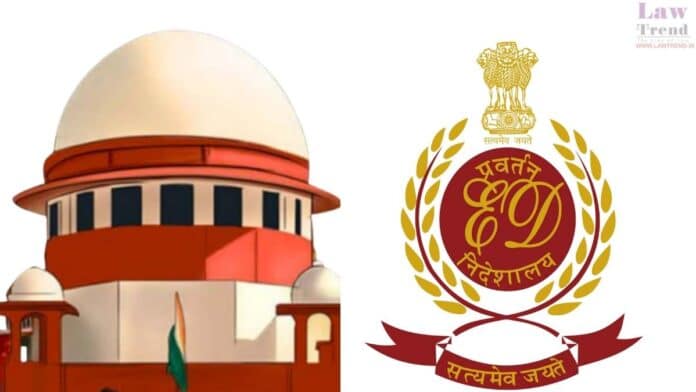The Supreme Court expressed concern over the Enforcement Directorate’s (ED) recurrent filing of supplementary charge sheets, highlighting that such practices hinder the commencement of trials and consequently, affect the accused’s ability to obtain bail.
During a hearing on Wednesday, the court remarked that the ED appears to be employing this tactic to indefinitely delay trials and prevent the accused from securing bail. The bench emphasized that it is inappropriate to keep an accused incarcerated indefinitely under the pretext of ongoing investigations.
The court also pointed out the case of an individual who has been jailed for 18 months, underscoring the problematic nature of such prolonged detentions without trial. The issue was raised during the bail hearing of Prem Prakash, who is implicated in an illegal mining case in Jharkhand and is alleged to be an associate of former Chief Minister Hemant Soren.
Justice Sanjeev Khanna, along with Justice Deepankar Datta, highlighted two critical points during the hearing:
- Prohibition Against Repeated Filing of Charge Sheets: The bench, addressing Solicitor General SV Raju representing the ED, stressed that the purpose of default bail is to ensure that no one is arrested until the investigation is concluded. It was asserted that the prosecution cannot indefinitely delay the trial to keep the accused jailed without a trial.
- Final Charge Sheet to be Filed Within 90 Days: Justice Khanna further stated that once an accused is arrested, the trial should commence. According to the law, if the investigation is not completed, the jailed accused is entitled to default bail. Alternatively, the final charge sheet should be filed within the stipulated timeframe defined by the CRPC or Code of Criminal Procedure, which is up to 90 days.
Also Read
The court’s attention was drawn to the case of Prem Prakash, arrested last month in connection with a money laundering case linked to illegal mining. Despite spending 18 months in jail, a final charge sheet has not been filed, prompting Prakash to seek bail.
While the ED argued that releasing the accused could lead to tampering with evidence or witnesses, the Supreme Court disagreed, stating that the agency could approach the court if any such activity occurs. However, keeping someone behind bars for 18 months without trial was deemed unjustifiable by the court.




